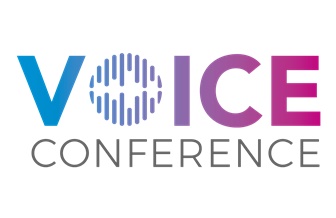Editorial Team: In your session abstract for VoiceCon you say that Voice Assistants are fundamentally changing the hospitality industry! Could you give an example?
Gurvinder Singh: In every industry, especially in hospitality, there is always striving to be the best in every aspect: customer service, response times, and problem-solving. Just to name a few.
Right now when a customer is facing a problem during a stay, he or she would need to call or message the host directly. This creates friction on the guest’s side and eventually an overload of tasks for the host. With voice technology, it is possible to transfer all the knowledge of the host in an easily accessible way. So with this method, it is possible to reduce the workload for hosts up to 70%!
Editorial Team: You have implemented a 360-degree system that helps identify new customer needs. How does it work?
Gurvinder Singh: The Voice Assistant System is present from check in to check out. When a new guest checks in, they are immediately greeted by name and offered certain things to do in the city or around the apartment. All of this is based on personal preferences.
The host is able to record daily tips in text or audio format and roll them out as status updates to all connected devices. When the customer is facing a problem, they can also simply use the voice assistant, which is trying to solve his problem. If this is not the case, the host will get a message so that they can call the guest right after to solve the problem.
At the time of checkout, the guest gets a notification regarding the checkout process, where to return the keys, and how to get to the airport or train station. The assistant also asks the guest to complete a small survey so that the system can be fine-tuned and extended for the next guest.
Learn more about Voice Conference:
Editorial Team: Where are the current challenges developing such a voice based system?
Gurvinder Singh: The challenges in building this system were identifying each user at any given time. With over 20 apartment installations it is important to set up the right background framework and database system to handle all the requests of the voice assistant.
It was also a hurdle to get the input-string of a user’s spoken text in the Alexa environment because out of the box Alexa does not offer this text string in the intent request. That’s why we built a specific model for this.
Editorial Team: How do you see voice in general? Is it a niche technology? Or are we facing a revolution in the interaction with technology?
Gurvinder Singh: Every new technology starts in a niche. Nobody thought previous technologies would have such an impact, it doesn’t matter if it was CUI, GUI or now VUI. It’s a fundamental technological interface shift that is still very early but will become a part of our daily life.
Major reason: Voice eliminates friction and is faster. Human beings value time over most other things. Due to the exponential technological progression, voice technology will become a lot better in the next few years, especially because the world’s biggest companies are putting tens of billions into this field. Amazon, Google, and Samsung are not doing this because it’s a nice little niche but because they understand how fundamental the changes will be this new technology brings.
Editorial Team: What is the core message of your session at VoiceCon?
Gurvinder Singh: Every business needs to think about a voice strategy. Start very basic and small to not waste money while trying to figure out what could work for you.
New technologies need time to mature and the early mover advantage is real. Maybe you haven’t taken full advantage of websites, apps, or social media. This is once again a new playing field. History is an indicator of the future.
Editorial Team: Thank you very much!












